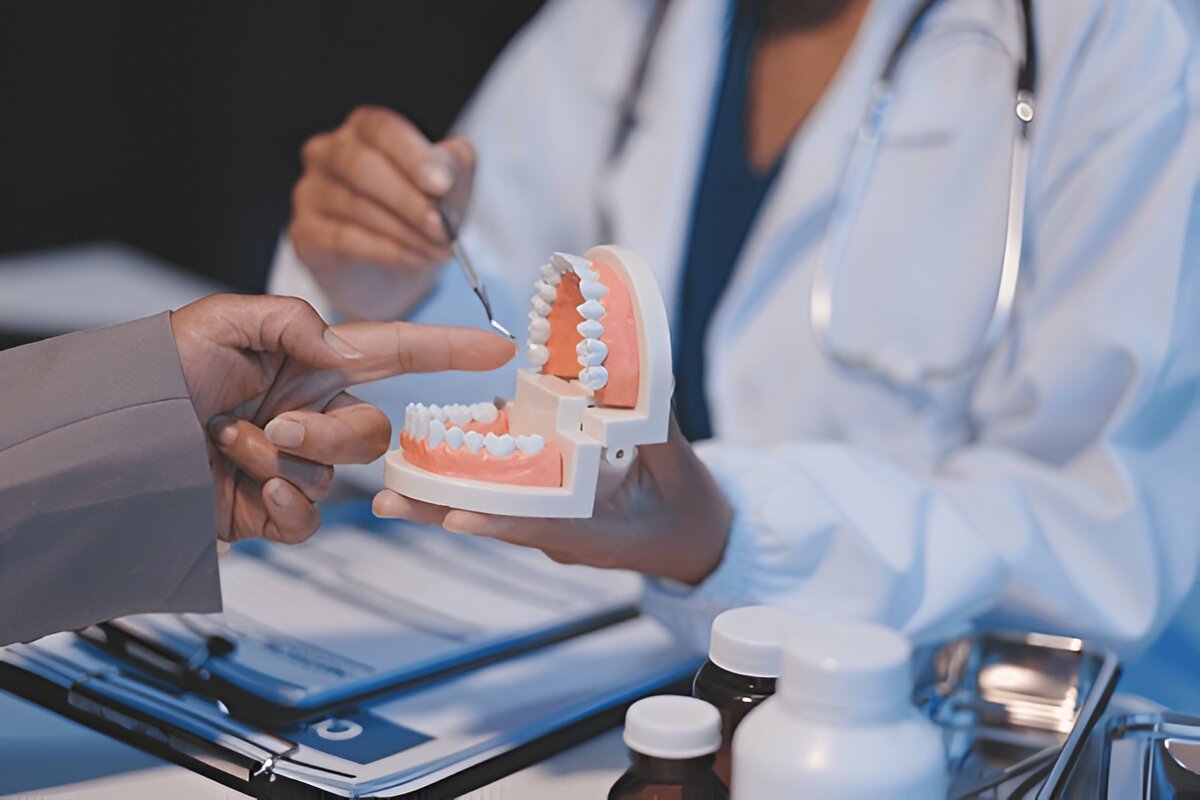Breaking dentures can be a stressful affair. You may feel embarrassed or uncomfortable or simply fed up. It is very easy to see why some people find doing a quick fix at home tempting. A quick search on the internet yields loads of DIY denture repair kits, inexpensive glues, or “home tricks” claiming to sort the problem. But before you reach for the glue, there’s something you should know.
Trying to fix your dentures yourself is seldom a good idea—and often does more damage than the break itself.
Homemade Repairs Often Go Wrong
Dentures must fit your mouth perfectly. They are specifically tailor-made for you, using exact shapes and measurements. And when they break or crack, even a slight change in shape can make the dentures uncomfortable or loose.
If you try to glue them back yourself, you risk putting the pieces in the wrong place or angle. What seems to fit might be out by just enough to make it painful. You could end up causing more wear on your gums, cheeks, or jaw—and that can lead to cuts, ulcers, or infection.
Shop-Bought Glue Wasn’t Designed for Your Mouth
For many people, when something breaks, the immediate action taken is reaching for the strong glue. A wood, plastic, or craft glue should not be used on things that go in your mouth. Such glues contain too many harsh chemicals, which could be poisonous if ingested or inhaled. Even if you can’t taste them, they are quite dangerous fumes.
Also, these glues are not designed to withstand hot and moist areas, like your mouth. They will either not bond at all, or they bond for a day or two and then break apart. Some can actually damage the denture material itself, which may be more difficult to repair later on.
Poor Fit Can Lead to Bigger Health Problems
If you are trying to wear dentures that don’t fit correctly, a lot of problems can arise. They may rub on your gums and cause sore spots. The sores can get infected or make it difficult to eat. You may also get jaw pain or headaches from chewing in the wrong manner if your bite is off.
Over time, badly repaired dentures can change the shape of your mouth. This makes future fittings more difficult and more expensive.
You Could End Up Spending More
You may think you can save money by repairing your dentures yourself. But often, individuals who attempt to make their own repairs end up paying more later on down the line. What could have been a simple repair now must be a full replacement. On occasion, dentists even have to correct the damage from poor repairs before they can begin the actual repair.
So, that “cheap and quick” solution? It will probably cost you twice as much by the end.
Dentists Are Trained to Fit Dentures Correctly
Your dentist or dental technician can safely handle denture repairs. They check the damage and spot hidden cracks, making the repair strong and smooth. More importantly, they will ensure your denture still fits properly and that you are able to speak and eat comfortably.
Many clinics offer same-day or emergency denture repair services, mainly if you have broken a tooth off or cracked a plate.
What You Should Do if Your Dentures Break
- Stop wearing them immediately. Do not try to “make them work”—this can lead to further damage.
- Keep all the pieces if they have broken in half or chipped. The dentist is often able to use them in the repair.
- Do not glue or tape anything together.
- Call your dentist right away. They will tell you what to do and when they can see you.
It is never a good idea to try and fix your own dentures. Yes, it might seem quicker or cheaper, but most often, it creates more pain, more damage, and a lot more cost later on. Dentures are made to be strong, but when they finally do break, it is only a professional who can make sure they are fixed properly. If your dentures are broken, uncomfortable, or simply do not fit as true, don’t guess. Contact your dentist and get the right help from someone who knows what they’re doing.
